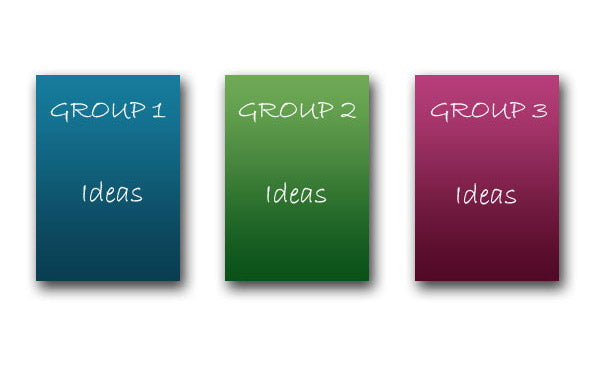Purpose
A particularly useful problem solving technique is to see a given problem from the point of view of a 10 year old. This view point usually helps to simplify both problems and solutions and as a result creates clarity. It is also a form of devil’s advocate analysis; if you cannot describe your products or problems to a 10 year old, you may need to work harder to increase your understanding of the problem.
Objective
Consider the problems you are reviewing from the point of view of a 10 year old.
Setup
- Divide the delegates to groups of 4 or 5.
- Ask each group to consider a problem that they can brainstorm over during this exercise. They should pick a topic that everyone can understand and contribute to.
- Allocate 5 minutes for groups to select a topic and discuss it quickly.
- Ask the groups to consider the problem from the point of view of a 10 year old.
- Ask the groups to nominate two members in each group that would act as 10 year olds. They will be listening to explanations and asking questions as if they are only 10.
- Others in the group must explain the problem at a suitable simplified level as if talking to 10 year olds. Those who are roleplaying the 10 year olds can ask appropriate questions fit for their age. The other members should answer accordingly.
- Ask groups to note down the questions that the 10 year olds ask for future reference.
- Allocate 10 minutes for this part.
- Swap roles. Those who were not acting as 10 will now act as 10 year olds and others act as adults.
- Ask the groups to repeat the exercise while noting down any questions asked by the 10 year olds.
- Allocate 10 minutes for this part.
- Now, ask members of each group to work together and analyse the questions asked by the 10 years old for about 5 minutes.
- Which questions were most challenging?
- What better ways can you answer these questions?
- How else would you formulate your answers for better understanding?
- What should you do to clearly state the problem and explain how your products address a given problem?
- What explanations were difficult to understand by the 10 year olds and how can you improve on them?
- Follow with a discussion.
Timing
Explaining the Exercise: 2 minutes
Activity: 5 min selecting topic + (10 min asking questions * 2) + 5 min analysis = 30 min minutes
Group Feedback: 10 minutes
Discussion
How effective was this method? What areas were covered this way that you have not covered using traditional brainstorming techniques? Why adopting this view helps to clarify problems? In what other ways can you use this technique?
Soft Skills Training Materials
Get downloadable training materials
Online Train the Trainer Course:
Core Skills
Learn How to Become the Best Trainer in Your Field
All Tags
Training Resources for You

Course Design Strategy
Available as paperback and ebook

Free Training Resources
Download a free comprehensive training package including training guidelines, soft skills training activities, assessment forms and useful training resources that you can use to enhance your courses.

Our Comprehensive Guide to Body Language

Train the Trainer Resources
Get Insights - Read Guides and Books - Attend Courses
Training Materials
Get downloadable training materials on: Management Training, Personal Development, Interpersonal Development, Human Resources, and Sales & Marketing














Leave a comment
All comments are moderated before being published.
This site is protected by hCaptcha and the hCaptcha Privacy Policy and Terms of Service apply.